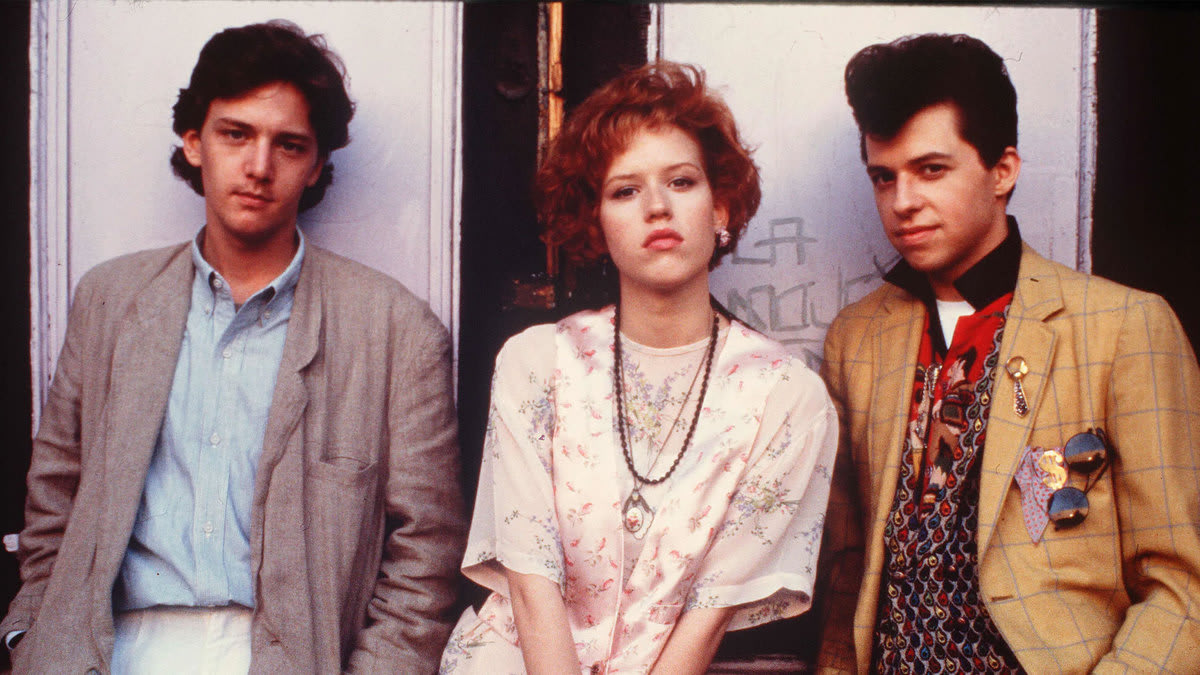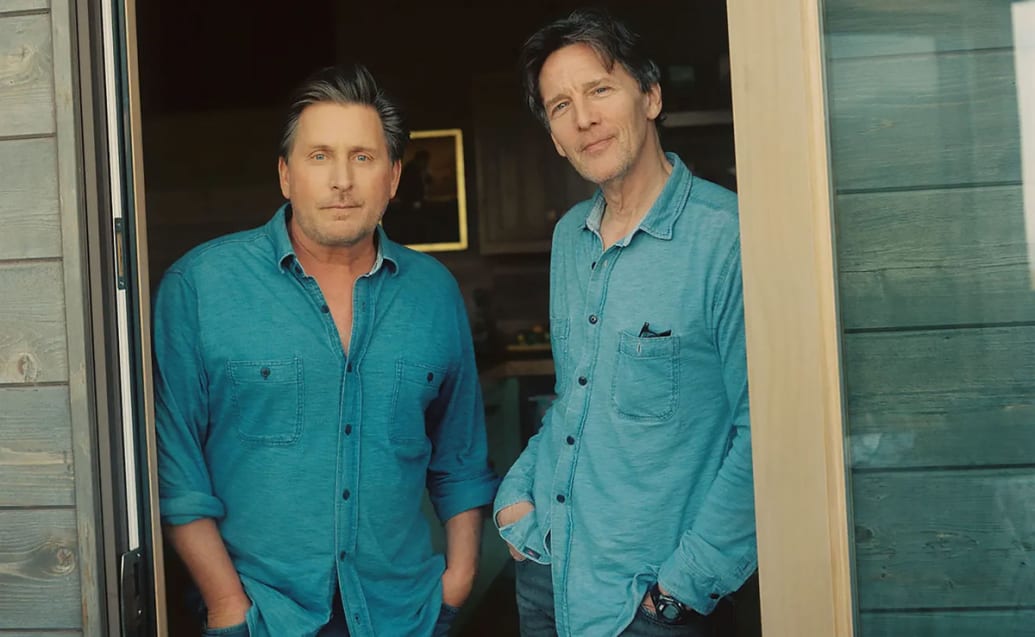Entertainment
How the Brat Pack Conquered Hollywood—and Then Fell Apart

There may still be debate about who, precisely, was in the Brat Pack (Ally Sheedy? Yes. Kiefer Sutherland? No), but there’s little argument about the seismic cultural impact of the informal group and its catchy moniker, which was first coined by David Blum’s 1985 New York cover story.
For the world, the term “Brat Pack”—a cheeky riff on the Rat Pack—was a catch-all way to refer to the young actors who were taking Hollywood by storm. For those on-the-rise artists, however, the nickname was less a cutesy blessing than a demeaning curse.
Four decades after it solidified their reputations and personas, Andrew McCarthy—one of the clique’s leading lights—revisits its legacy, and its effect on his own, with Brats, a feature-length documentary, which premiered at this year’s Tribeca Film Festival ahead of its Hulu debut on June 13. The film chronicles the whirlwind phenomenon and, it turns out, the tricky process of looking back and learning to both accept the good and let go of the bad.
To McCarthy, the Brat Pack was shorthand for something awful. “It created the perception that we were lightweights. That we didn’t take it seriously,” he says in Brats, and the “it” to which he refers is his craft. Along with Sheedy, Emilio Estevez, Rob Lowe, Judd Nelson, and Molly Ringwald (as well as numerous “Brat Pack adjacent” compatriots, as Lea Thompson calls herself), McCarthy was part of a group of twentysomething stars who represented a titanic Hollywood shift.
The cast of St. Elmo’s Fire
Columbia Pictures
Headlining a wave of films that were expressly focused on the personal, social, and emotional lives of teens, they were icons for a new generation, and the works that marked their early careers—Sixteen Candles, The Breakfast Club, St. Elmo’s Fire, Pretty in Pink, and About Last Night…—came to define 1980s youth culture. When McCarthy, at one point in his documentary, likens The Breakfast Club to The Catcher in the Rye, the comparison is eye-openingly apt, since for kids of a certain age (and those that followed), the Brat Pack’s signature movies were essential expressions of their young adult realities.
In McCarthy’s estimation, however, all that was sullied and overshadowed by Blum’s magazine feature, which began as a profile of Estevez before morphing into its final form following the author’s night out on the town with his subject. McCarthy spends considerable on-screen time in Brats explaining—to the camera and interviewees—that the moment the Brat Pack moniker was born, it immediately entered the zeitgeist and, consequently, altered how everyone inside and outside the industry viewed him.
To his mind, none of this was positive, since it reduced him and his colleagues to flippant tyros who cared more about partying than acting. Whether that opinion was correct or not (or people even held it) soon became secondary to the fact that he felt denigrated (and pressure to overcome it), and it deleteriously altered his outlook on himself and his fortunes.

Emilio Estevez and Andrew McCarthy
ABC News Studio
Filled with film clips and set to prominent tunes from the era, Brats is McCarthy’s first-person reckoning with his own rise-and-fall path, and it motivates him to reconnect with as many fellow Brat Packers as are willing to participate. Alas, Ringwald and Nelson are not, and no one even mentions Anthony Michael Hall, which comes across as something close to sacrilege. Nonetheless, the rest are game, beginning with Estevez, who says that he’s spent years avoiding retrospective screenings of his ’80s hits because the Brat Pack reputation so interfered with his ambition to become a celebrated actor/director along the lines of his father.
Asked if he would erase the term from history if he could, Estevez admits it’s “a difficult question to answer, because you can only know the known. Was it something that we benefited from? Maybe. But in the long run, I think we did not. I think there was more damage done by it than good.”
Sheedy feels similarly hurt by the label, and Timothy Hutton—dubbed “the godfather of the Brat Pack” for winning an Oscar for 1980’s Ordinary People—says he thought it was “cheap.” Yet as McCarthy proceeds with his inquiry, he increasingly recognizes, and embraces, a different perspective on the Brat Pack. Demi Moore seems largely unperturbed by her association with the nickname, and her remark, “We were babies!” speaks to the fact that their negative reaction had a lot to do with immaturity, especially in light of their hyper-competitive, image-focused business. Lowe is even more sanguine about the entire period, reminding McCarthy that being fondly remembered for anything after 30-odd years must indicate that it means something to people.

Demi Moore and Andrew McCarthy
ABC News Studios
In Brats’ finale, McCarthy sits down for an extended conversation with Blum, who confesses that he made a few snide jabs at McCarthy and his ilk in the magazine piece, but otherwise refuses to apologize for an article, and term, that he saw as an accurate and entertaining portrait of notable individuals at a precise moment in time.
“Do you think you could have been nicer?” McCarthy asks at the end of their chat. His desire for repentance, alas, goes unsatisfied; though he understands why McCarthy and company might not have liked it, Blum is upfront about the pride he felt, and feels, over the Brat Pack title. Moreover, as he states, his article was about attention-seeking adults and the behavior they chose to exhibit in his presence, and thus any blowback was, to him, “collateral damage.”
In talks with Jon Cryer, Malcolm Gladwell, Bret Easton Ellis, author Susannah Gora, and Indiewire critic Kate Erbland, McCarthy gains a deeper understanding of the formative influence that the Brat Pack movies had on American kids and, by extension, the culture at large. As Brats persuasively contends, they were, and remain, beloved gateways that help usher boys and girls from adolescence to teendom. As such, their lasting value negates the Brat Pack designation’s (potential) ugliness.
Even if it derailed the dreams he once held, McCarthy appears to find some peace with his membership in this exclusive club—which never really existed, since they never hung out or even knew each other—by grasping that it made him and his “branded” brethren the very thing all movie actors aspire to be: immortal.







:max_bytes(150000):strip_icc()/roundup-writereditor-loved-deals-tout-f5de51f85de145b2b1eb99cdb7b6cb84.jpg)


